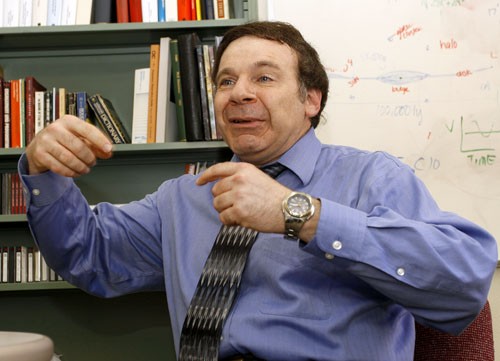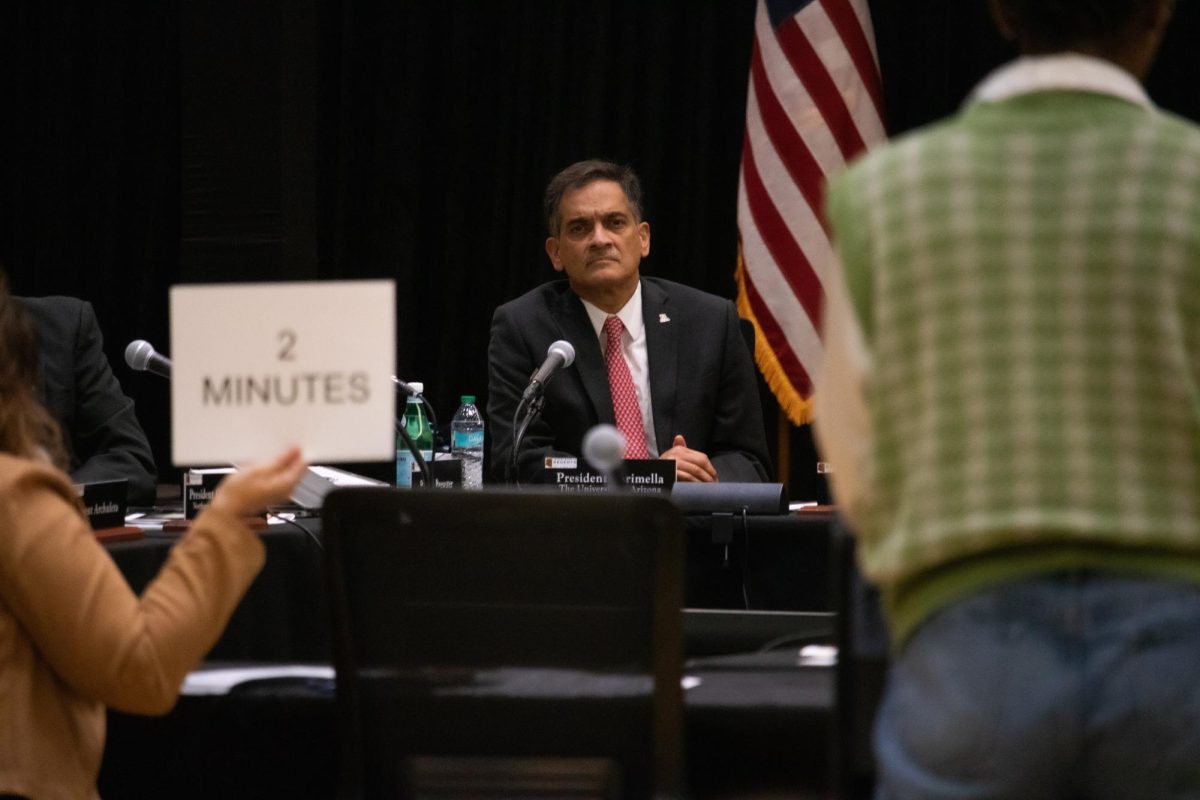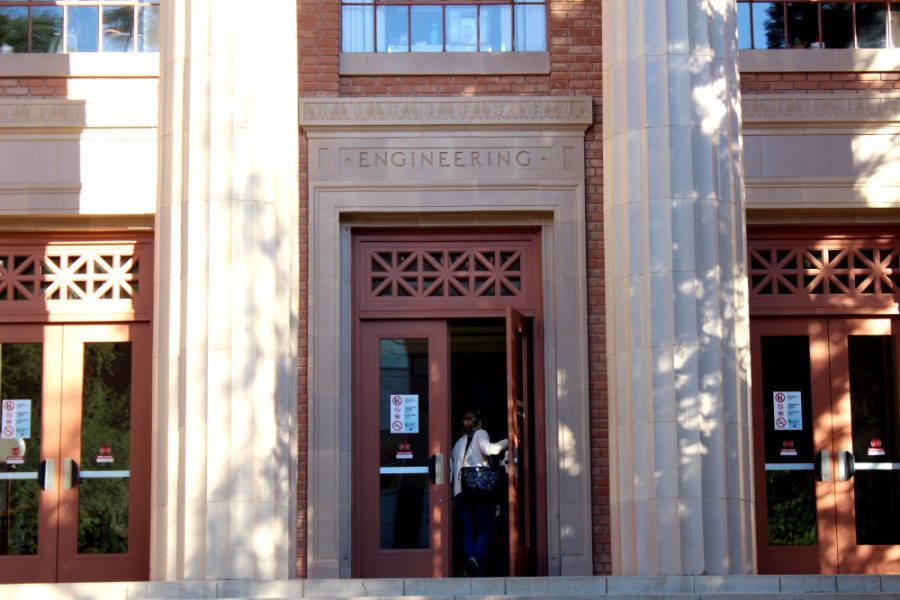The Arizona Daily Wildcat’s new weekly segment “”Everyone has a story”” aims to tell the story of an interesting person on the UA campus. This week, we’ve interviewed UA professor and associate astronomer Thomas Fleming who teaches the Astronomy 203 and Natural Sciences 102, The Physical Universe, courses.
Most people don’t know their dream career at 12 years old, but Fleming did.
In 1961, Fleming gazed at the television set as John Glenn went into space. It was then that Fleming knew he wanted to work in astronomy.
“”When I young, Carl Sagan went on the Johnny Carson show and I remember thinking, ‘God, this is so cool. You’re relying on science, on what can be proven, and not on wild speculation,'”” Fleming said. “”I also saw that the universe is much more interesting and bizarre than people’s fantasies and imaginations.””
Sagan was a famous American astronomer, astrophysicist and author with Hollywood connections, who presented the 1980 television series “”Cosmos: A Personal Voyage,”” and wrote popular science books such as “”Contact,”” which became a major motion picture in 1997.
Fleming may have known his dream job in middle school, but that didn’t stop him from being a normal kid.
“”I knew that if I wanted to pursue astronomy, I would play football and practice singing in high school and junior high school while I still could,”” he said.
Fleming played football in high school in Canton, Ohio, where he was born and raised. Fleming got a 4.0 GPA and sang in musicals such as “”The Music Man.””
He wanted to go to Cornell University because Sagan taught there, so he decided to apply there and Ohio State University for his undergraduate studies.
Fleming ended up studying physics at Cornell on a full scholarship.
“”I was really excited to go where Carl Sagan was,”” Fleming said. “”But when I arrived at Cornell in 1978, I learned that Sagan was living in Los Angeles.””
Fleming did eventually get to meet Sagan during his junior year of college.
As an undergraduate, Fleming never lost sight of his passion for music. He sang in the Cornell Glee club and Cornell Chamber of Singers. He sang at Carnegie Hall twice, and once at the Kennedy Center.
In 1982, Fleming came to the UA and became a teaching assistant for about four years. He did an observational thesis with the telescopes at the university and won an outstanding teaching award.
Upon earning his docorate in 1988, Fleming went to Munich, Germany on a postdoctoral fellowship.
During this time he became fluent in German and sang in German concert halls.
“”I could teach my Tier One (Natural Sciences) course in German because I also know the astronomy terms in German,”” Fleming said.
In 2000, Fleming won the Provost’s General Education Teaching Award.
“”I’m not Einstein, I’m not going to win (the) Nobel Prize in Physics,”” Fleming said. “”But I think I have a talent to explain scientific concepts in a way that people who aren’t studying science can understand.””
Fleming attempts to relate scientific topics at hand to every day life.
“”I always try to find analogies in everyday life that can somehow connect to the topic we’re studying, whether it’s sun spots on the sun or nuclear fusion reactions,”” Fleming said. “”I was an athlete in high school and on a soccer league in Germany, so I have some appreciation for student athletes.””
To interact with students, Fleming also holds star parties at Saguaro National Park. CatTran has recently begun transporting students to the park for the event.
“”Astronomy inspires imagination,”” Fleming said. “”It’s a little easier to understand than other scientific topics, and it connects to everyone’s lives.””









